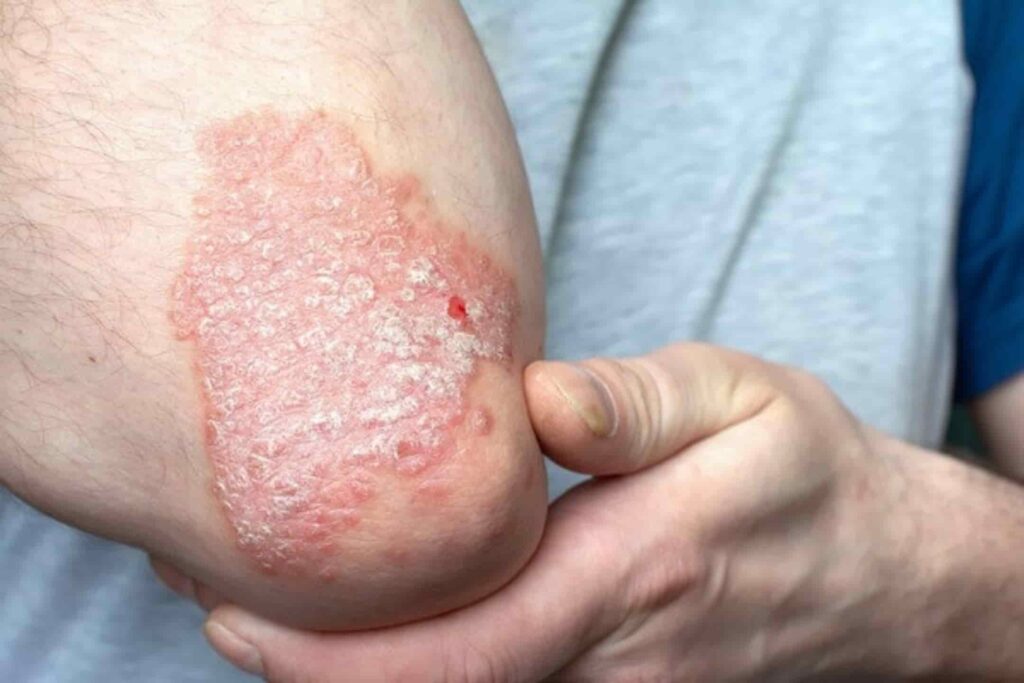Green Healing: Navigating Medical Marijuana for Psoriasis and Psoriatic Arthritis
Medical marijuana has emerged as a potential treatment option for various medical conditions, including psoriasis and psoriatic arthritis. In this article, we’ll delve into the relationship between medical marijuana and these autoimmune conditions, exploring how this alternative therapy might offer relief and management for those affected.
Introduction
Before we dive into the specifics of medical marijuana’s potential for treating psoriasis and psoriatic arthritis, let’s first establish a basic understanding of both medical marijuana and these skin conditions.
Understanding Psoriasis and Psoriatic Arthritis
Psoriasis is a chronic autoimmune condition characterized by red, inflamed patches of skin topped with silvery scales. These patches, known as plaques, often appear on the elbows, knees, scalp, and lower back but can also affect other areas. Psoriatic arthritis is a type of inflammatory arthritis that affects some individuals with psoriasis, causing pain, stiffness, and swelling in the joints. This condition can lead to joint damage and disability if not properly managed.
Living with psoriasis or psoriatic arthritis can be challenging, both physically and emotionally. Beyond the visible symptoms, individuals may experience itching, discomfort, and self-consciousness about their appearance. Moreover, the chronic nature of these conditions can impact daily activities and overall quality of life.
The Endocannabinoid System: A Key Player
To comprehend how medical marijuana may affect psoriasis and psoriatic arthritis, it’s crucial to grasp the role of the endocannabinoid system (ECS). The ECS is a complex network of receptors and neurotransmitters throughout the body, regulating various physiological processes, including inflammation and immune response.
When the body experiences inflammation or injury, the ECS helps to maintain balance, or homeostasis, by modulating the release of neurotransmitters and cytokines. This regulatory role makes the ECS an attractive target for therapeutic interventions, including medical marijuana.
Medical Marijuana and Its Components
Medical marijuana contains hundreds of chemical compounds, but two primary cannabinoids, THC (tetrahydrocannabinol) and CBD (cannabidiol), have garnered the most attention for their potential therapeutic effects. THC is known for its psychoactive properties, which can induce feelings of euphoria or relaxation. Conversely, CBD is non-intoxicating but may offer anti-inflammatory, analgesic, and anxiolytic properties.
In addition to THC and CBD, medical marijuana contains other cannabinoids, such as CBG (cannabigerol) and CBN (cannabinol), as well as terpenes and flavonoids. These compounds work synergistically to produce the overall effects of the plant, known as the entourage effect.
Research and Evidence
While research on the use of medical marijuana for psoriasis and psoriatic arthritis is still in its early stages, some studies suggest that cannabinoids may help alleviate symptoms associated with these conditions. For example, a study published in the Journal of Dermatological Science found that cannabinoids inhibited the proliferation of keratinocytes, the predominant cell type in the epidermis, suggesting a potential role in managing psoriasis.
Similarly, a study published in the journal Pain investigated the effects of CBD in an animal model of arthritis and found that CBD significantly reduced joint inflammation and pain without causing significant side effects. While more research is needed to fully understand the mechanisms of action and optimal dosing regimens for medical marijuana in treating psoriasis and psoriatic arthritis, these preliminary findings are promising.
In addition to clinical research, anecdotal evidence from patients also suggests potential benefits of medical marijuana for managing psoriasis and psoriatic arthritis symptoms. Many individuals report improvements in skin appearance, reduced inflammation, and pain relief after using medical marijuana products.
Methods of Administration
Medical marijuana can be consumed in various forms, each with its advantages and considerations. Inhalation methods, such as smoking and vaporization, offer rapid onset effects but may pose risks to respiratory health. Oral administration, including capsules, tinctures, and edibles, provides longer-lasting effects but requires metabolism through the digestive system, which can delay onset and reduce bioavailability.
Topical application of medical marijuana products, such as creams, lotions, and patches, allows for localized relief of symptoms without producing systemic effects. This route of administration is particularly appealing for individuals with psoriasis, as it directly targets affected areas of the skin.
When considering methods of administration for psoriasis or psoriatic arthritis, individuals should work closely with healthcare professionals to determine the most suitable approach based on their symptoms, preferences, and medical history.
Conclusion
While medical marijuana shows promise as a potential treatment for psoriasis and psoriatic arthritis, it’s essential for individuals to approach it with caution and under the guidance of healthcare professionals. As research continues to unfold and laws evolve, patients can remain hopeful that alternative therapies like medical marijuana may offer relief and improved quality of life for those living with these challenging conditions.

Dr. Nicholas Marsh has been a respected board-certified anesthesiologist in Northern Virginia for over 35 years. Recognized as a top doctor by FindaTopDoc.com, his vision for providing top-quality medical services is driven by his passion for patient comfort and dignity.

